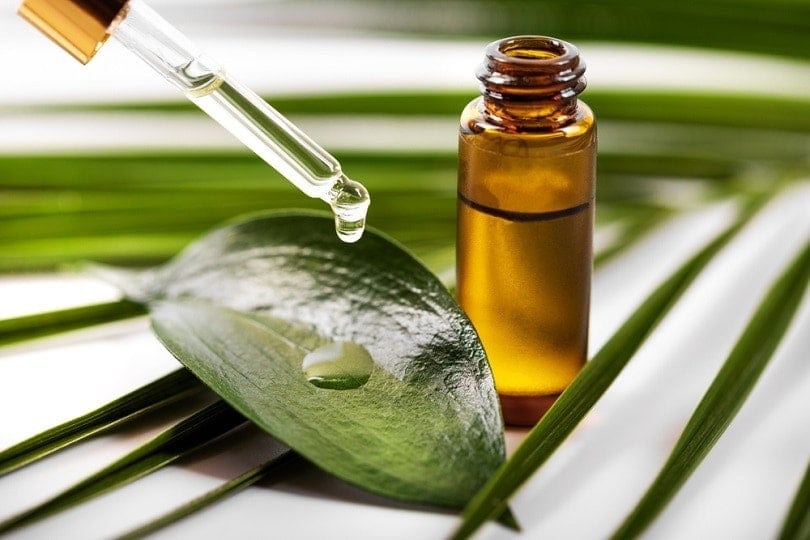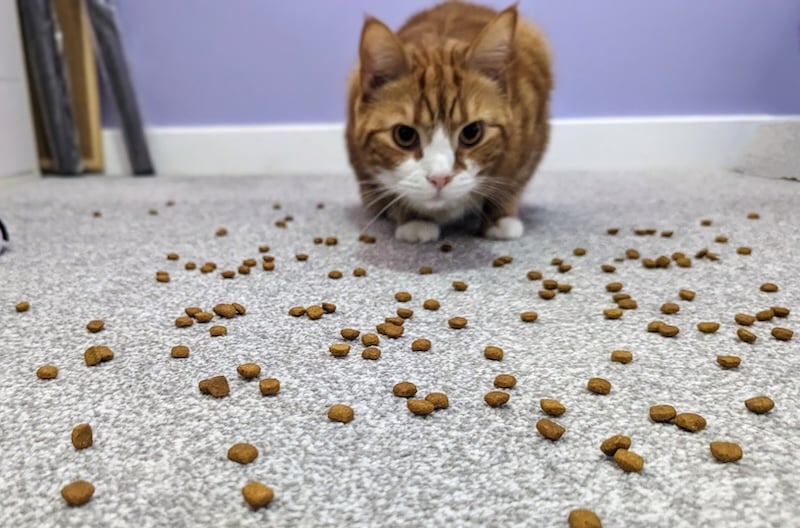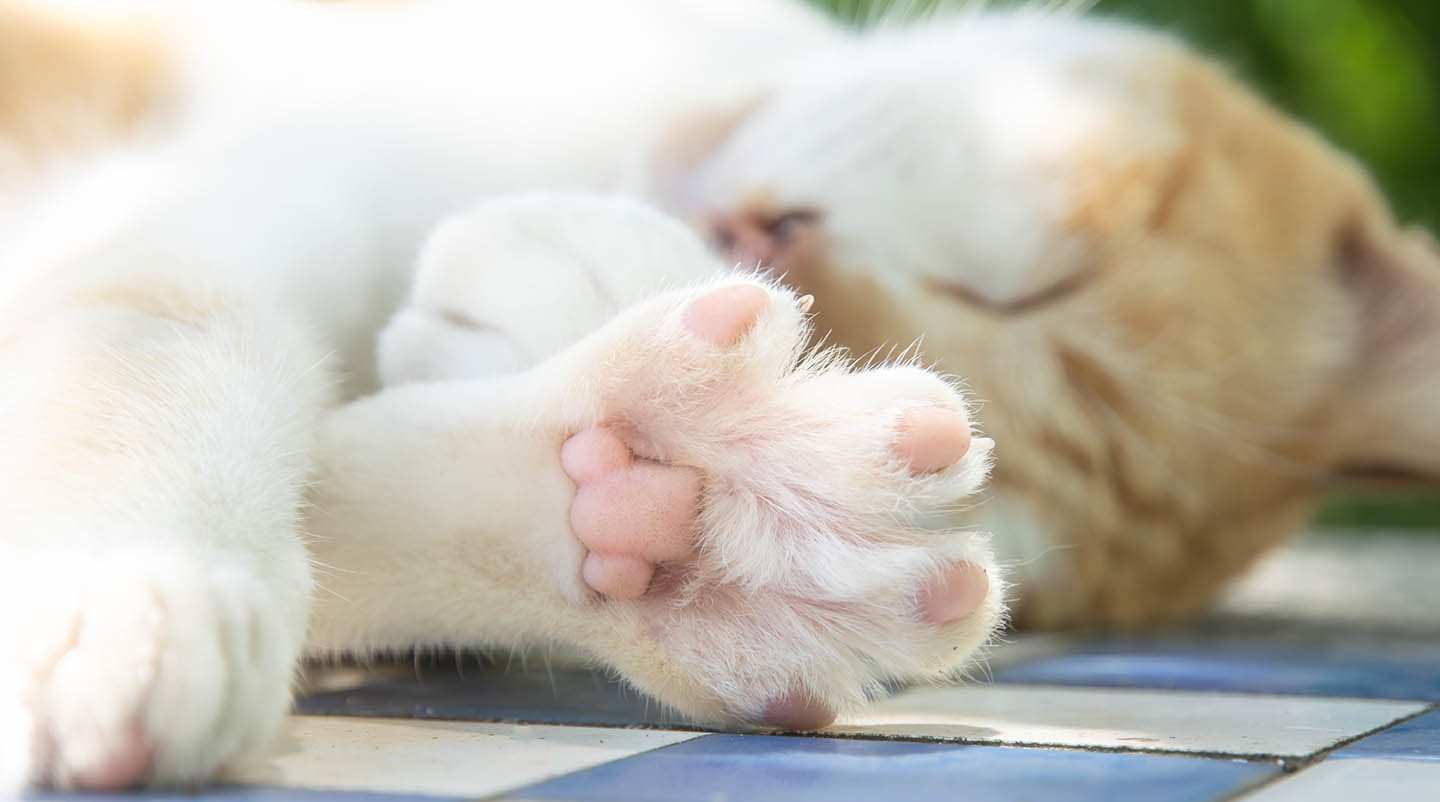If your cat has a serious flea problem, you could become desperate enough to try anything to resolve the issue. Waking up with several new, red bumps along your skin and watching your cat scratch uncomfortably is never pleasant. Tea tree oil is commonly found in many homes and is effective at killing many types of parasites. It is widely believed to be effective at killing fleas too.
However, this essential oil is also toxic to cats and shouldn’t be used on their bodies or ingested, regardless of the quantity.

Is Tea Tree Oil Effective at Killing Fleas?
Tea tree oil is a natural remedy that is commonly used to treat skin problems in humans and some animals due to its antibacterial and antifungal properties. It is also effective at killing certain types of ticks and lice, but there is little scientific evidence proving that it kills fleas.
Anecdotally, many people claim to have used this essential oil on their pets and around their homes and have had positive results. However, the science disagrees with using tea tree oil near cats because the potential anecdotal benefit is not worth the immediate, potentially life-threatening risk to your cat.
It may be tempting to use essential oil around your home to repel fleas. However, essential oil used around the house (either as drops, sprays, or via a diffuser) are never recommended in cat households. These oils are dangerous for cats in all their forms, as your cat may easily inhale diffused vapors or come into contact with sprays or drops left on a surface. Though some holistic veterinarians are able to formulate cat-safe dilutions for such products, this task is best left to such professionals.
In addition, it is worth noting that if you do have a flea problem, essential oils do not kill fleas, they just repel them. Their inability to effectively kill fleas coupled with the danger to your cat means they shouldn’t be on your list of go-to flea remedies.
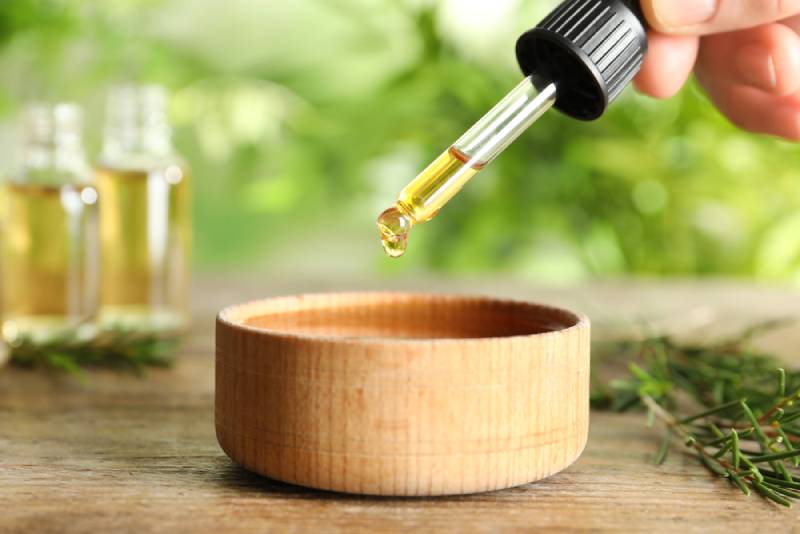
Why Shouldn’t I Use Tea Tree Oil on My Cat?
Tea tree oil isn’t safe to use on cats because if it is accidentally used improperly, it will harm them. One of the biggest concerns is not using the correct concentration of tea tree oil. You may have followed the dilution directions according to the instructions, but there is always a risk that you could be off or that you use too much of the mix on your cat.
Another reason you should never use tea tree oil on your cat is that they are natural groomers that spend most of their day licking themselves. If they ingest the solution, they can become very sick.
You may have noticed that some flea and tick shampoos use tea tree oil in their ingredients. These products are safe to use on your cat because they only contain small amounts of the essential oil, which is evenly distributed throughout the product. Also, be careful of using undiluted tea tree oil around your home. It will be strong enough to kill some parasites and possibly repel others, but it’s dangerous to you and your cat if you breathe it into your lungs all day long.
Signs of Tea Tree Oil Toxicity
According to the Pet Poison Helpline, it only takes seven drops of undiluted tea tree oil to come into contact with your cat’s skin to cause severe poisoning in your pet. Signs of tea tree oil toxicity can present themselves within an hour of your cat touching or ingesting the substance and will include the following:
- Low body temperature
- Weakness
- Skin irritation
- Uncoordinated walking
- Inability to walk
- Tremors
- Decreased heart rate
- Coma
- Death
If you know that your cat has ingested tea tree oil but hasn’t shown any signs yet, don’t wait for them before contacting your vet. It’s important to act quickly and get your cat the treatment they need, as this could save its life.
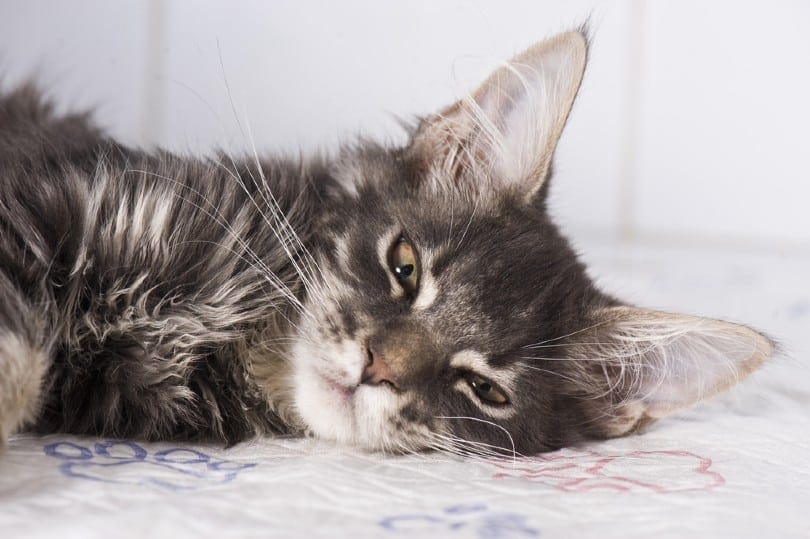

Conclusion
Although there is no scientific evidence that tea tree oil kills fleas specifically, it is effective at killing many other types of parasites and is believed to kill fleas too. However, it is not safe to use on your cat because the wrong concentration used on their skin can cause serious health issues. There is also a high risk that they will ingest the substance when they groom themselves, which will lead to tea tree oil toxicity.
Instead, use flea and tick treatments that have been recommended by your vet, as they are safe to use on your cat.
Featured Image Credit: ronstik, Shutterstock

